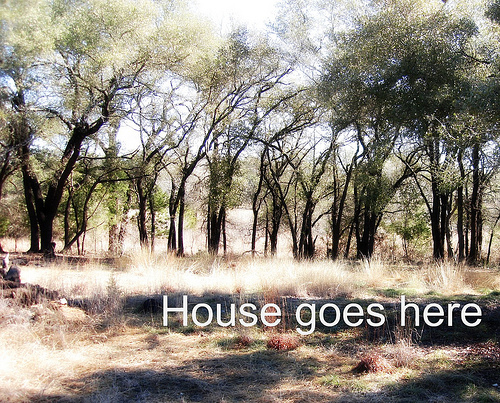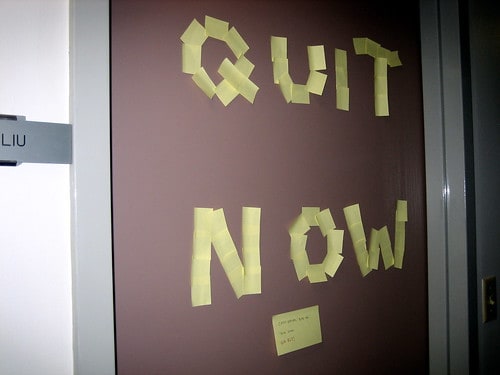The economics of country mouse vs. city mouse
 I've lived in a small town for most of my life. The drive home includes steep hills with panoramic views and winding country roads that ramble past ranches and wide-open fields.
I've lived in a small town for most of my life. The drive home includes steep hills with panoramic views and winding country roads that ramble past ranches and wide-open fields.
But I didn't always have positive feelings about the country life. In high school, I hated it. All of the action was in the city, where coffee shops, museums, restaurants, and concerts happened. When I moved to the city my freshman year of college, I thought that would be the end of country living — I was finally a city mouse.
As it turned out, after seven years in the city, I did move back. It began as a purely financial decision, and one that, at the time, made me feel a twinge of anxiety. I remember that as my husband and I were packing up our apartment in town to get ready for the move, I had a mini meltdown, asking him, “Are you sure you want to do this? Are you really sure you want to do this?" (He probably thought I was nuts since the whole thing was my idea, but he's a wise man and kept that to himself, simply saying that yes, he was sure.)
Dealing with office politics: How to win the office politics game
"Office politics" is one of those phrases that used to make me groan. I worked in an office from the time I was a freshman in college until I quit my job last year, and let me tell you, I had my fill. I dealt with situations that would make our presidential candidates wince, and I tried many approaches to deal with it, such as pretending to be completely oblivious to it (a very bad idea, by the way).
But I had one boss, the best manager I've ever had, who was great at the game. She's the one who taught me how to do things like keep a brag folder and remind a senior manager 10 different ways that she still hadn't approved a proposal. In fact, she was so diplomatic and professional that one of the only "negative" things I heard about her was "she gets along with everyone." (Yes, she was being bad-mouthed for not taking sides.)
I learned many valuable lessons from this manager, and I came away with a much different understanding of office politics.
How to Know When to Quit

After a year or two, it got harder to get up in the morning and face an eight-hour day of doing whatever it was I was hired to do. By years three to five, the shine was wearing off, and finally it was clear that I needed to quit my job. I'd tried to make proactive changes, but it was time to move on.
Winners never quit?
This move-on point is what bestselling author Seth Godin calls a cul-de-sac in his book The Dip: A Little Book that Teaches You When to Quit (and When to Stick). He says when you hit a cul-de-sac (French for "bottom of the bag," meaning "dead-end"), it's time to quit. This sort of advice is quite unlike the winning and failing quotes we hear so often in our society, such as:
10 career lessons from Julia Child


Readers, I hope you'll forgive me for writing another culinary-themed post here at Get Rich Slowly. Last week I wrote about the expense of healthy food cooked at home, and this week I can't help but to talk about something that's been on my mind as I've read My Life In France by Julia Child and Alex Prud'Homme.
My Life in France chronicles Julia Child's life from the year she arrived in France in 1948, knowing nothing about the French culture or language, nor the cuisine she would so famously present to to America in her ground-breaking cookbook, Mastering the Art of French Cooking, and her television show, The French Chef.
Food fight: Does healthy food have to be more expensive?
Last month a food fight erupted when Anthony Bourdain, chef, author, and host of the Travel Channel's "No Reservations", was asked by TV Guide to give his opinion of a handful of celebrity chefs and cooks. Of cooking show host Paula Deen, he criticized how unhealthy her food is, saying,  "If I were on at seven at night and loved by millions of people at every age, I would think twice before telling an already obese nation that it's okay to eat food that is killing us."
"If I were on at seven at night and loved by millions of people at every age, I would think twice before telling an already obese nation that it's okay to eat food that is killing us."
Deen responded, saying, "...not everybody can afford to pay $58 for prime rib or $650 for a bottle of wine...I cook for regular families who worry about feeding their kids and paying the bills...It wasn't that long ago that I was struggling to feed my family, too."
Food for the Working Class
You can click the links to read their accusations about "unholy connections with evil corporations," food that sucks, and lack of charity, but what interested me was what was being said about the was healthy, she countered that it was for the working class. Bourdain, for his part, was accused of "culinary elitism" in the New York Times. Columnist Frank Bruni writes:
Preparing for an Emergency
A few weeks ago, I wrote about how hot it was in the Lone Star State. The update is that we're literally on fire.
Wildfires have destroyed hundreds of homes in central Texas, and they're breaking out all over the state (more than 60 fires so far). We were at dinner last night when my mom received four phone calls in quick succession — all family members and friends checking to see if we were okay. In the few hours since we left the house, another wildfire was reported north of Austin and less than 10 miles from our home. That fire evacuated 500 people, burned 300 acres, and destroyed at least 13 homes, but it's not nearly as big as the one 25 miles east of Austin, which has destroyed 34,000 acres and nearly 550 homes.
This led to a conversation about how prepared we were if we had to evacuate at some point, whether in the near future or even years from now. Would any of us be prepared for such an emergency? Mom said she wanted to make a plan, and Dad agreed that it's not a bad idea. "People have done crazy things during emergency evacuations," he said. "I've heard of people having minutes to leave and taking out the trash." And minutes is about how long people in our area have had to evacuate, as a combination of drought and wind created the perfect storm for deadly and fast-moving wildfires. Continue reading...
Get the Most Mileage from Frequent Flier Rewards

Flash forward to the beginning of this summer, when I redeemed my miles for three tickets to Europe which cost about $120 each, including processing fees as well as the annual fee on my rewards credit card for the last few years (the card is tied to the airline program and awards points with every purchase made on the card). It's a great deal to be sure, considering that we paid about $1,250 for a ticket the last time we hopped across the pond. This was long before I knew anything about smaller booking sites and how to find cheaper flights.
Some turbulence
Redeeming miles wasn't a piece of cake. In fact, we ended up booking part of the trip through another airline because the available flights that started in our hometown and ended at our desired destination were just plain nuts. Four connections, long delays, and a jaunt from LaGuardia to JFK, and I don't mean a connecting flight between the two airports, I mean we would have had to arrange to get ourselves from one airport to another to catch the next flight. Um, no thank you. An almost-free flight isn't worth that much hassle. Continue reading...
Dissatisfied customer? Make an effective complaint


But sometimes it's uncomfortable to be the squeaky wheel. Even though I write about money and personal finance, I often avoid complaining. I feel uncomfortable being in the presence of others while they are complaining — I stopped going to lunch with a former coworker because he complained to the manager at almost every restaurant.
While that's a little extreme, it is important to speak up. Companies want to retain you as a customer, especially if you're reasonable and have a valid complaint. Good customer service still exists. The key is to approach the complaint process with a plan. Continue reading...
10 easy ways to lower your electric bill

I don't know what the weather is like where you live, but here in Austin, Texas, the heat and drought are the topic of 85% of conversations (that's science).
 As a native Texan, I usually roll my eyes when people lament about the heat. One of my friends summed it up nicely: "I'm tired of hearing people talk about the weather. It's hot in the summer and cold in the winter. Welcome to Earth."
As a native Texan, I usually roll my eyes when people lament about the heat. One of my friends summed it up nicely: "I'm tired of hearing people talk about the weather. It's hot in the summer and cold in the winter. Welcome to Earth."
But this year is different. According to the Lower Colorado River Authority, a nonprofit public utility in Central Texas, the 10 months from October 2010 through July 2011 have been the driest for that period since 1895, when the state began keeping rainfall records. Without rain, temperatures hit record levels in June and July, which were the hottest months on record statewide. As of August 5, Austin hit 100+ degrees 52 times this summer.
The financial cost of obesity
Weight and finances have been discussed at length on personal finance blogs, but mostly the report [PDF] that put a figure to the staggering individual costs of being obese in America. Dr. Avi Dor, report author and professor and director of the health economics program at The George Washington University, and his colleagues quantified indirect costs, direct costs, and lost productivity to arrive at an estimated total cost of being an obese individual.
The High Price of a High BMI
After tabulating various costs associated with being overweight or obese, the researchers found that being an obese individual in the U.S. costs $4,879 for women and $2,646 for men each year. The overall annual costs of being overweight are $524 for women and $432 for men. The researchers defined "obesity" as a body mass index (BMI) higher than 30, and "overweight" as a BMI between 25—29.
Adding the value of lost life to these yearly costs makes the price tag even higher: $8,365 and $6,518 for women and men, respectively. Continue reading...
Become A Money Boss And Join 15,000 Others
Subscribe to the GRS Insider (FREE) and we’ll give you a copy of the Money Boss Manifesto (also FREE)

